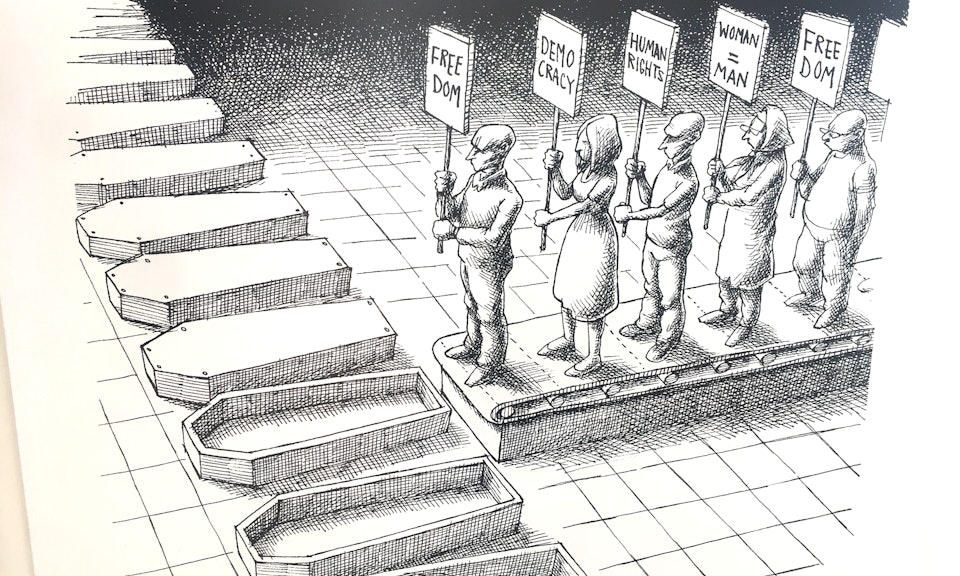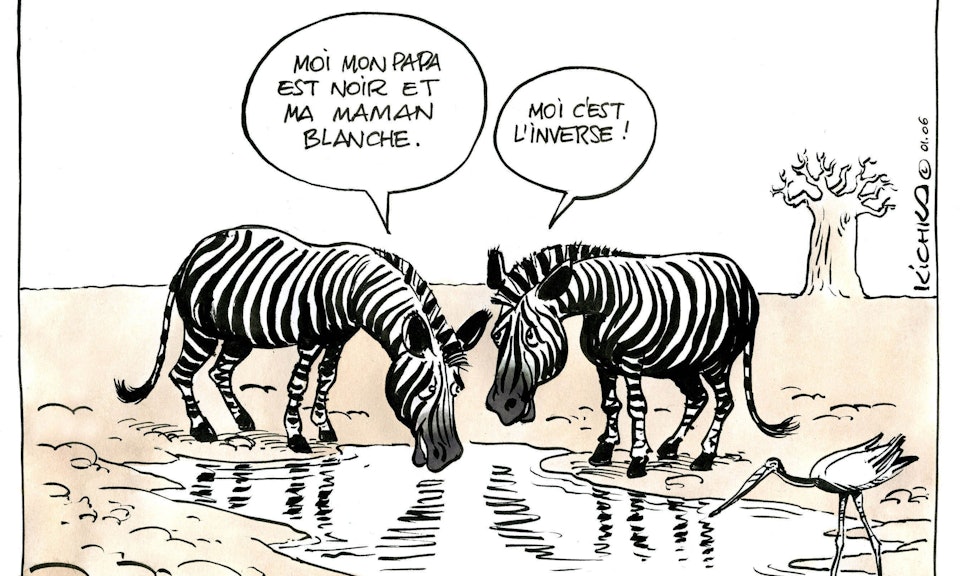Featured Organization
Cartoonists Rights Network International (CRNI)
North America

Based in the United States, Cartoonists Rights Network International (CRNI) is a human rights organization working in defense of editorial, comic and other cartoonists whose work leads to direct threats against their life or livelihood.
Editorial cartoons are featured widely in the popular press, which frequently puts cartoonists and journalists at risk of being targeted by extremists, thugs and tyrants. Political cartoonists are often the first journalists to be attacked for their irreverent and satirical commentary against tyrants and terrorists alike. Because their cartoons are so immediately recognizable, cartoonists often have a greater influence over public opinion than other media figures. Attacks against cartoonists are especially likely in places where rule of law, artistic expression, and personal freedom are not respected.
Founded by Dr. Robert Russel in 1999, CRNI diligently monitors human rights abuses against editorial cartoonists worldwide, including censorship, imprisonment, physical intimidation, and assassination. In order to support threatened artists, CRNI aims to put international pressure on their oppressors. To this end, the organization launches campaigns on artists’ behalf’s with the aim of attracting public attention—reaching out to prominent state members, their fellow ministries, and cooperatively partnering with other human rights and cartooning organizations to maximize the pressure and impact of a coordinated campaign to protect the cartoonist and confront those who seek to censor political cartoonists.

In 2018, CRNI played an instrumental role in the release of Iranian cartoonist and asylum seeker Ali Dorani, (also known by the moniker Eaten Fish), from the Australian “detention center for asylum seekers” on Manus Island, Papua New Guinea. After a four-year detention, Dorani was finally granted asylum in Norway through an ICORN fellowship.
Later that year, CRNI launched another successful campaign after graphic novelist Ramón Nsé Esono Ebalé was imprisoned in Equatorial Guinea on bogus counterfeiting charges—likely motivated by his criticism of the country’s president and government. The charges against Ebalé were dropped following a global #FreeNseRamon coalition that mobilized hundreds of artists, activists, and organizations devoted to protecting artistic freedom, freedom of expression and other human rights.
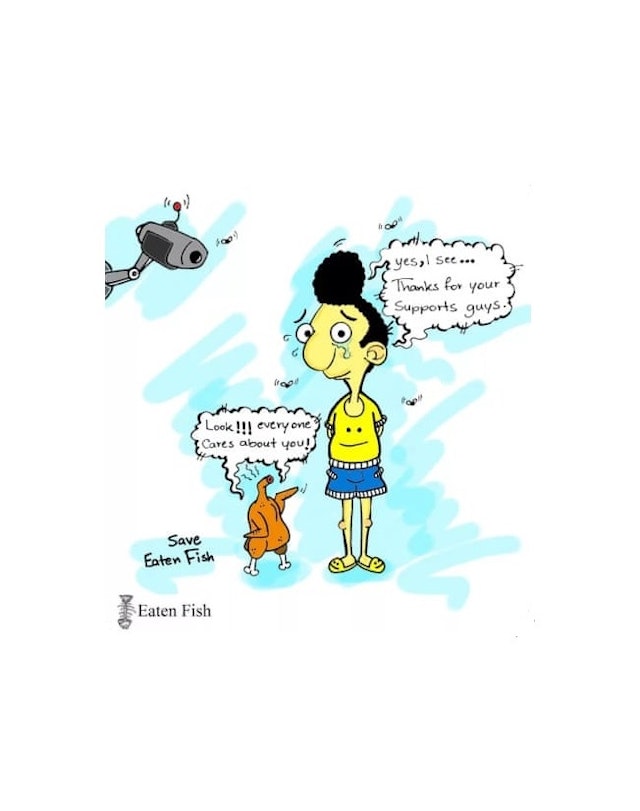

To draw public and media attention to the perilous circumstances of these brave artists, and to increase international pressure on those who threatening cartoonists’ free speech and human rights, CRNI presents their annual Courage in Editorial Cartooning Award to a political cartoonist who has demonstrated exceptional courage and resilience in the face of life-threatening risk and danger. This recognition often acts as a powerful deterrent to foreign governments working under the assumption that their actions will go unnoticed. Past awardees include Pedro X. Molina (2018, Nicaragua), Ramón Esono Ebalé (2017, Equatorial Guinea), or Eaten Fish (2016, Iran).
After working with more than 120 cartoonists under threat, CRNI notes one important commonality among the many incidents of threats, violence, legal charges, digital attacks and attempts at censorship: the cartoonist is most often taken completely by surprise. CRNI wants at-risk cartoonists to be informed of the resources available to them and to find strength and solidarity in the support of the greater cartooning community. CRNI’s Safety Manual for Cartoonists provides advice and action plans for cartoonists under pressure or threat.

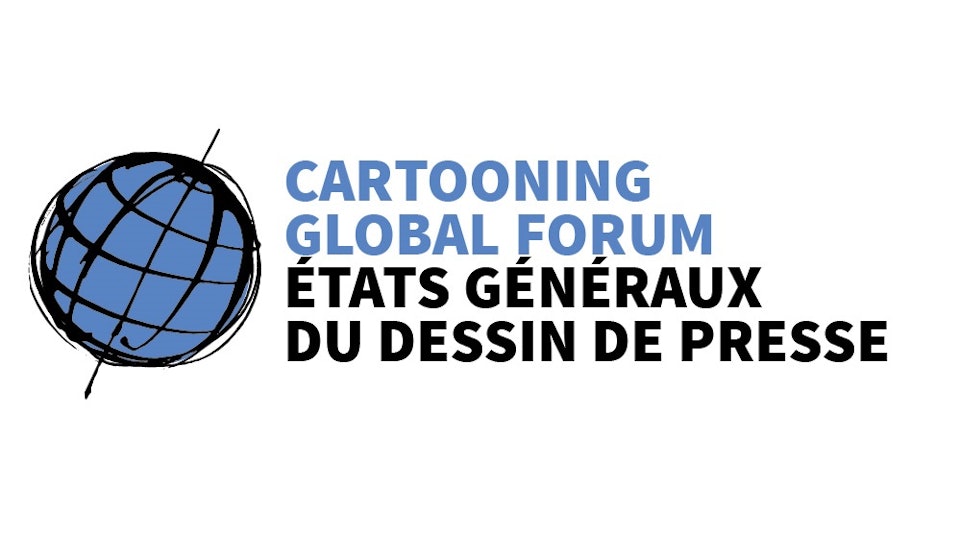
On October 3, 2018, CRNI, with other partners, presented the first Cartooning Global Forum (États Généraux du Dessin de Presse)—a new initiative for cartoonists all over the world. It is “not a new organization but rather a new opportunity for cartoonists, the bodies that represent them and affiliated stakeholders from the press and media as well as those working to protect freedom of expression to share knowledge and experience and identify areas of common interest where we can work collectively,” said CRNI.
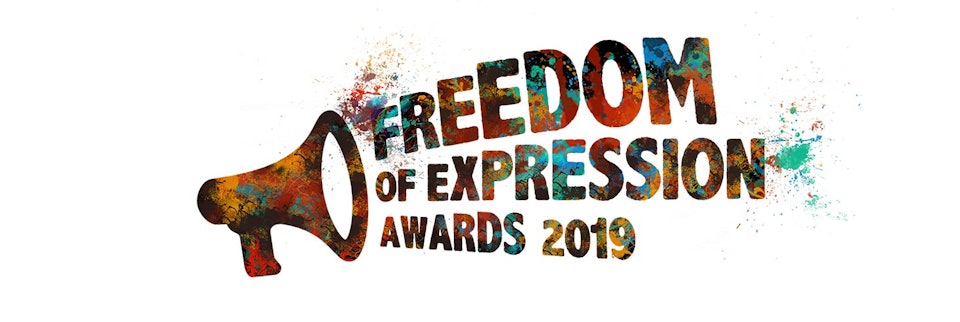
In January 2019, CRNI has been nominated by ARC network member Index on Censorship for the 2019 Index Awards in the "Campaigning" category for activists and campaigners who have had a marked impact in fighting censorship and promoting freedom of expression. It’s a well-deserved honor, and ARC is fortunate to count CRNI as a member of ARC’s Advisory Committee.
As artistic freedom organizations, ARC and CRNI have closely collaborated on several cases over the past few years. ARC recognizes that cartoons can carry powerful ideas and are a crucial element of free expression. ARC and CRNI are devoted to defending the artists behind these images and fulfill a vital role at the intersection of artistic expression and human rights.
By Baha' Ebdeir and Julie Trebault, April 1, 2019.
